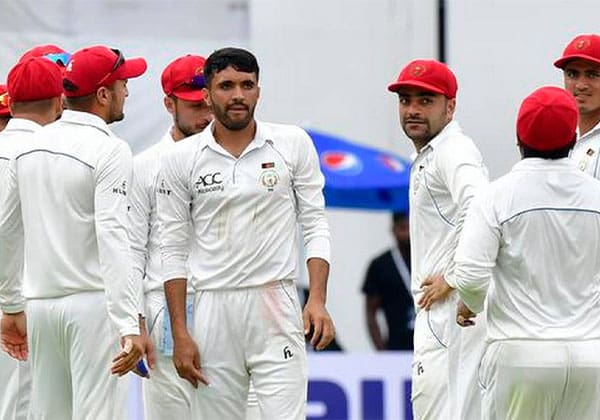The Afghanistan national men’s cricket team were scheduled to play a test match against Australia in Hobart this November, pandemic permitting. Such a match would have been a pivotal moment for Afghan cricket. An overseas Test in Australia is a coveted fixture for any cricketing nation, representative of true belonging on the test stage. However, citing their ‘sport for all’ mantra, governing body Cricket Australia (CA) released a statement claiming the match would not go forward until the Taliban’s reported position of prohibiting women from playing cricket changed. This prohibition contravenes the International Cricket Council’s (ICC) requirement that members have both a men’s and women’s national team, raising questions for the global body as well. Since then, Australian captain Tim Paine has called for Afghanistan to be banned from the upcoming ICC T20 World Cup, Afghanistan’s T20 captain and best-known player Rashid Khan has resigned as captain, and the Taliban appeared to soften their position on the issue. In a rapidly changing environment, powerbrokers of the game and fans more generally must be careful in their application of sanctions. Disqualification ought to pursue the distinct goal of protecting women’s ability to participate in cricket in Afghanistan instead of avoiding futile and punitive measures with ambiguous benchmarks for success.
Politics is heavily intertwined with Afghan cricket. While the sport was introduced as early as 1839 by the British during the Anglo-Afghan wars, Afghanistan is unlike other cricketing nations in that the game was popularised with displaced Afghans in refugee camps in Pakistan’s North-West Frontier Province in the late 20th century. The Taliban initially banned the sport, although gave it an exemption from its blanket sports ban and subsequently grew the sport rapidly for male-only teams. They became an affiliate member of the ICC in 2001, and since 2009 the game has seen massive growth, in part because of cricket’s inclusion as an official part of the national sports curriculum in schools.
As a full test-playing nation since 2017, the Afghanistan men’s cricket team had been flagged by the Taliban as valuable in garnering international legitimacy. Doing so would continue the strong history of the use of sport for political purposes. On one hand, a strong international sporting presence has large symbolic value for nations on the international periphery. Mere participation in global events normalises a country’s international inclusion and subconsciously has the effect of glossing over the crimes of their governments. If a national team is successful, national unity is presented through the virile notions of strength on which autocratic governments thrive. Yet sport can also have the effect of fracturing national communities with supporters forging strong allegiances based on commonalities other than nationality. Stadiums can become arenas of mass dissent, with the anonymity and capacity for collective protest that crowds offer being recently used in football stadiums to challenge autocratic governments in Turkey and Iran in a way that is otherwise inaccessible.
A cricketing boycott of Afghanistan is considered a way of leveraging these dynamics. Sporting boycotts differ from other international sanctions because they are immediately visible to the population and can manipulate governments’ deep attachment to particular national sporting teams. But CA and the ICC perhaps care more about the symbolic rejection of human rights that a boycott offers. That a CA media release claims there is “no other option” but to cancel the match speaks to the perception that participating in sports matches against a country in a sense legitimises its government.
Weighing against sanctions, it is argued that banning a team from participating in competitions is unfair to the players and even the fans affected, as they cannot be held responsible for the actions of their government and are arguably without significant power to generate change. It is also concerning if we consider what countries have been sanctioned, for questions are raised about arbitrary selections based on western perceptions. The most persuasive argument is that sanctions are ineffective, with the sanctioning of a sport’s team being unlikely to challenge the deeply held ideological or strategic positions of a government. With a spokesperson for the Taliban government’s cultural commission recently telling SBS that, “We will not cross Islamic values even if it carries opposite reactions. We will not leave our Islamic rules,” a cricketing boycott may well encounter this problem.Negotiating these arguments is tricky and requires precise targeting of condemnation rather than performative acts. For the position of CA and the ICC to be successful, boycotts should be limited to targeting female participation in cricket in Afghanistan. In giving a specific and relatively simple measure for the Taliban to consider, Cricket Australia can justify the targeting of Afghanistan as opposed to Pakistan, ranked 136th on the Gender Equality Index. The Taliban conceding that women will be allowed to play “soon” is a sign that the boycott may be having an effect.





